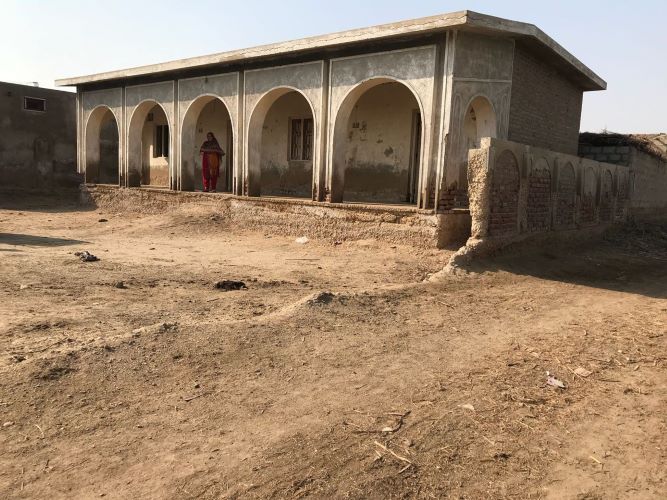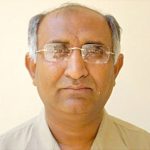
Many schools lack basic facilities such as proper classrooms, libraries, and laboratories
Prof Dr. Abdullah G Arijo
Education is the cornerstone of a nation’s progress and development. It plays a vital role in shaping the future of individuals and societies. In the province of Sindh, Pakistan, educational standards have been a matter of concern for quite some time.
The educational system in Sindh faces numerous challenges that hinder its progress. One major issue is the lack of infrastructure and resources in schools, especially in rural areas. Many schools lack basic facilities such as proper classrooms, libraries, and laboratories. This not only affects the quality of education but also discourages students from pursuing their studies.
Moreover, there is a shortage of qualified teachers in many schools across Sindh. The existing teachers often lack proper training and motivation to deliver quality education to their students. This results in a significant gap between what is taught and what should be taught.
Surprisingly, Sindh ranks seventh in education facilities in Pakistan. Not a single district of Sindh is among the top 60 in primary school infrastructure
Furthermore, there is an urgent need to revise the curriculum to make it more relevant to the needs of modern times. The current curriculum focuses heavily on rote learning rather than critical thinking and problem-solving skills. This approach hampers creativity and innovation among students.
To address these issues, it is crucial for the government to allocate sufficient funds for education and prioritize its improvement at all levels. Investments should be made in building infrastructure, providing training opportunities for teachers, and developing a curriculum that fosters critical thinking skills.
Surprisingly, Sindh ranks seventh in education facilities in Pakistan. Not a single district of Sindh is among the top 60 in primary school infrastructure and the nation has priority to celebrate events like Ajrak-Topi Day, Cultural Day, Ayaz Melo etc. and just dancing programs for the five minutes fame.
In conclusion, improving educational standards in Sindh requires concerted efforts from all stakeholders involved – government authorities, educators, parents, and communities. By addressing issues such as infrastructure deficiencies, teacher shortages, and outdated curricula; we can pave the way for a brighter future where every child has access to quality education that equips them with.
Besides, school infrastructure in Sindh, a province in Pakistan, has long been a cause for concern. Bud the policymakers keep up with mushroom universities, with virtually no facility and quality education.
The dilapidated condition of schools not only hampers the learning process but also poses serious risks to the safety and well-being of students. This issue demands urgent attention from the government and relevant authorities.
Firstly, many schools lack basic facilities such as clean drinking water, functional toilets, and proper ventilation. These conditions are not conducive to learning and can have detrimental effects on students’ health. Moreover, inadequate infrastructure affects the quality of education provided. Outdated classrooms with broken furniture and insufficient resources hinder effective teaching and learning.
Furthermore, the safety of students is compromised due to crumbling buildings that are at risk of collapsing. It is disheartening to witness children attending classes in hazardous environments where their lives are constantly at stake. Such conditions create fear among parents who worry about their children’s well-being while they pursue an education.
To address this pressing issue, it is imperative for the government to allocate sufficient funds towards improving school infrastructure in Sindh. Renovation projects should be initiated immediately to ensure safe and conducive learning environments for students. Additionally, regular maintenance should be carried out to prevent further deterioration.
In conclusion, the poor state of school infrastructure in Sindh is a matter that requires immediate attention from authorities. By investing in better facilities and ensuring safety measures are met, we can provide an environment where students can thrive academically without compromising their well-being.
Unless otherwise, long-term planning is not part of the strategy, and help comes from the heavens, Sindh will be lurking in the lake.
________________
 Prof. (R) Dr. Abdullah G. Arijo is Advisor and Visiting Professor, SBBUVAS, Sakrand, Pakistan. He is Ex-Chairman, Department of Parasitology, Sindh Agriculture University and Ex-Advisor Academics & P&D to Vice Chancellor SAU Tandojam
Prof. (R) Dr. Abdullah G. Arijo is Advisor and Visiting Professor, SBBUVAS, Sakrand, Pakistan. He is Ex-Chairman, Department of Parasitology, Sindh Agriculture University and Ex-Advisor Academics & P&D to Vice Chancellor SAU Tandojam
[…] Read: Educational Standards of Sindh […]